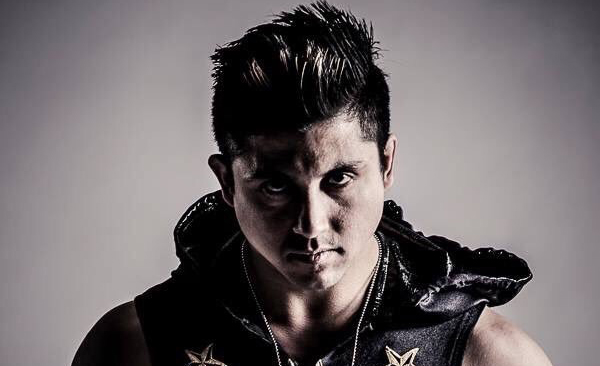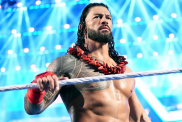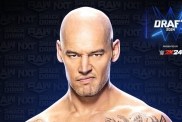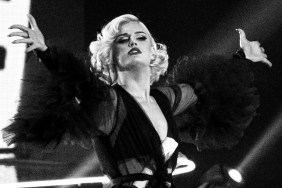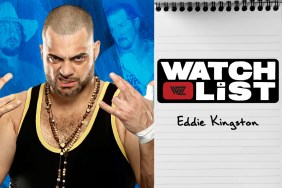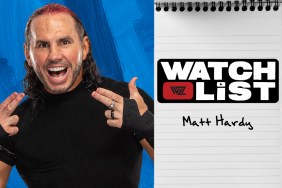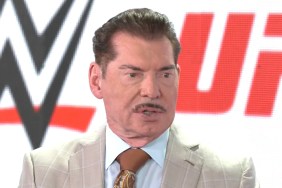Former WWE Cruiserweight Champion TJP (aka TJ Perkins) recently spoke with Kevin Kellam for Wrestlezone and talked about getting to showcase himself on a large stage while openly embracing his Filipino roots. Perkins talked about being in a position to build a bridge for other Southeast Asian or minorities to be a proud representative of their communities:
“Well for me that was my end game, that’s my life’s work. Being homeless changed my perspective on everything, and it happened at an oddly convenient time. I put in about 10 years and hit that roadblock hard. It taught me that I did not understand the value of the power of what I was starting to accomplish, the gift I was given, and the opportunities I had. Part of what I ended up realizing is that I have the power to represent something bigger than me, and to help others in ways I didn’t realize. In my culture, all we really ever had was Manny [Pacquiao], so we need more heroes and there are so many of us doing great things. It’s funny because I’ll get ill-tempered or malicious fans that will ask me what I think of other Filipinos or other performers assuming that I’m territorial about it.
The thing is, the reason that I made the choices that I have and display this so proudly is because it’s the exact opposite. I want more people to help me carry this banner and build more bridges so that more of us can do this. Like I said, all we ever had was Manny before, and I always looked up to Batista for example, but that was weird for me because I had actually been wrestling longer than him. But he got into a position where it was like he could really represent our community in a huge way—and he did—but I was hoping that he’d embrace it more openly or in a bigger way. I just felt like I’ve been given an opportunity to do this and I wanted to do it openly so that in the future there are guys—the DJZs, Shotzi [Blackheart], Fallah Bahh—not even in our industry, but anything, like Filipino hip-hop artists, actors or influencers of every kind. For them to have a medium where they can do it more openly, and to do it. That’s always what I wanted, so the more the merrier is the way that I’ve looked at it. That’s my endgame. I want my community to thrive and to inspire other communities, whether you’re Latino or a different type of Southeast Asian—whatever culture you come from, I want you to be able to show that you can be a positive bridge for your community.”
Perkins also talked about what it’s like getting back on the independent circuit and said it’s almost like he’s learning how to be a wrestler all over again. He said today is much different compared to the “dark, dark, dark ages” when he started back in 1998, noting that there’s a lot more interconnectivity than in the past.
“But now it’s so different. From the 2000s until now is vastly different, and I haven’t had this type of freedom in ten years. I went from Lucha Libre USA for a few seasons right over to Ring Of Honor for a couple years, to IMPACT for a few years, and then WWE for the last three years. So, not since 2010-11 have I had this freedom and it’s a whole new universe with so many different possibilities. I feel like it’s much more positive; guys are more encouraging and helpful, and people are more in control of their own brand, and there’s so much more opportunity to create exactly what you want for what you want to do with your career. It didn’t used to be that way.”
Lucha Libre is bigger than it has ever been, and Perkins talked about what appeals to him and fans, as well as how devoted lucha fans are and how they embrace the culture:
“I think for me it is my favorite culture in wrestling. The fans are very—there’s a creativity and there’s a certain acceptance with it—it’s an innocent connection. I know that sounds weird because you still hear stories, and I’ve been through it as a bad guy in Mexico. I’ve had rocks thrown at me, cigarettes put out on me, that sort of thing, and it’s still that way to this day, but when you’re a good guy they’ll throw money into the ring and they love you. It’s weird to say that that atmosphere is innocent, but it really is because they take it for what it is and they don’t try to create narratives and operate in that way. They take it and react to it and it’s just sort of a pure connection with those fans. Other than maybe some Japanese fans, it’s just not that way in the world anymore.
That’s one thing that I’ve always loved about the Mexican wrestling culture is that that’s the case, and I feel like the locker rooms are more encouraging and guys are not as territorial. They’re accepting and open-minded of each other, and nobody feels like there’s character territory or ‘moves’ territory. Everybody’s pretty cool with making magic happen and it’s just something that you don’t see in other wrestling cultures. It’s primarily lucha libre for those two elements, but it’s how I got my start and it’s going to be in my blood, so to speak, and being a LA boy, it’s always been this pure version of this art for me.”
Related: TJP On How Wrestling Relates To A TV Series Cast, Clarifies His IMPACT Wrestling Status
